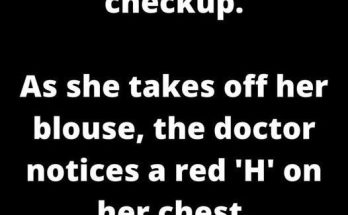When most people think about COVID-19, the same symptoms come to mind: fever, fatigue, cough, and loss of taste or smell. But as millions of people have learned in very personal ways, the virus often behaves unpredictably.
Recently, Ellen DeGeneres spoke publicly about her own struggle with the illness, shedding light on a surprising and often overlooked symptom—severe back pain. For Ellen, the discomfort was so intense that she described it as one of the most painful experiences of her life.
Her words resonate not only because of her celebrity, but because they echo what countless others have experienced in silence: COVID can attack the body in ways many of us never expect.
Ellen’s Experience With the Virus
Ellen contracted COVID-19 in December 2020. Like many people, she had taken precautions. She had followed safety guidelines and was careful about exposure. Yet, the virus still found its way into her life.
At first, she braced for the symptoms she had heard about on the news: fatigue, fever, coughing. What she did not expect was the sudden, overwhelming back pain that left her struggling to function.
“What they don’t tell you is that you will have severe back pain,” Ellen explained. “I had no notion that was a symptom until I spoke with a few other people.”
This revelation stunned her fans and sparked a wider discussion, especially among older adults who may already be familiar with back or joint discomfort. Ellen’s account reminded everyone that COVID symptoms are not always predictable, and even the healthiest individuals can be caught off guard.
Why COVID-19 Can Cause Back Pain
Medical experts have since noted that back pain is indeed reported by many patients. The pain may be caused by:
- Inflammation triggered by the body’s immune system response
- Muscle strain or spasms related to viral infection
- Circulatory or neurological involvement, which can affect how muscles and nerves function
For some people, this musculoskeletal pain lasts only a few days. For others, especially older adults, the discomfort can linger long after the virus has left their system.
Doctors emphasize that while not everyone experiences back pain, it is an important symptom to recognize—especially if it appears suddenly and is more severe than usual.
The Broader Picture: Unusual COVID-19 Symptoms
Ellen’s testimony fits into a larger pattern. While fever and cough remain the most common signs, COVID-19 has been linked to an array of unusual and sometimes frightening symptoms, including:
- Intense muscle or joint pain
- Brain fog and confusion
- Skin rashes or changes in circulation
- Sudden dizziness or balance problems
- Neurological issues such as tingling or numbness
For seniors, these symptoms may be dismissed as part of normal aging. But Ellen’s story highlights why it is important not to ignore new or severe discomfort. What seems like “just back pain” could be connected to something larger.
Why Ellen’s Story Matters to Seniors
Older adults already face higher risks when it comes to both COVID-19 and back pain. Many seniors live with arthritis, osteoporosis, or general muscle weakness. When the virus adds another layer of strain, the results can be overwhelming.
Ellen’s openness provides reassurance for those who may have experienced similar pain. It validates their experiences and reminds families to pay attention when their loved ones complain of new aches or unusual discomfort.
Her words also highlight the need for research into long-term COVID-19 symptoms, particularly in how they affect the musculoskeletal and nervous systems of older adults.
Managing Back Pain After COVID
If you or someone you love has struggled with back pain during or after COVID, you are not alone. While every case is different, doctors recommend several steps for relief and recovery:
1. Gentle Movement
While rest is important, lying down for too long can worsen stiffness. Light stretching, short walks, or gentle yoga can help keep circulation flowing and prevent muscle weakness.
2. Pain Management Strategies
Over-the-counter medications may help reduce inflammation. Warm compresses, baths, or heating pads can also soothe aching muscles. Always check with a doctor before starting new treatments.
3. Physical Therapy
For lingering pain, physical therapy may be beneficial. A therapist can guide safe exercises tailored to each individual’s recovery needs.
4. Good Posture and Ergonomics
Many people recovering from illness spend more time sitting or lying down. Using supportive chairs, adjusting pillows, and maintaining good posture can help reduce additional strain.
5. Medical Evaluation
If back pain is severe, persistent, or accompanied by other symptoms like shortness of breath or numbness, medical evaluation is essential. COVID-related complications can be serious, and early attention makes a difference.
Hope Through Shared Experience
Ellen DeGeneres’s willingness to talk about her pain does more than raise awareness. It gives others permission to speak about their own struggles, whether they are famous or not.
Too often, we minimize our symptoms or dismiss them as “part of getting older.” But health is not something to ignore. Back pain, fatigue, or unusual aches deserve attention—especially in the context of a recent illness.
Her words echo a truth many seniors already know: listening to your body is one of the most powerful forms of self-care.
The Takeaway
COVID-19 continues to challenge our understanding of health. For some, the illness brings mild symptoms. For others, it brings surprising and painful experiences—like Ellen’s debilitating back pain.
What matters most is awareness. Knowing that back pain can be part of COVID’s reach helps us prepare, respond, and recover. It reminds us that every symptom matters, and no concern should be dismissed.
For seniors, who may already live with muscle or joint discomfort, Ellen’s story is a call to pay attention. It’s also a reminder that healing takes time, patience, and sometimes professional support.
Her honesty gives voice to countless others. And her message is simple: even the strongest among us can be caught off guard, but none of us are alone in the journey of recovery.



